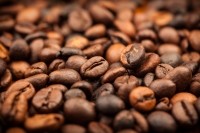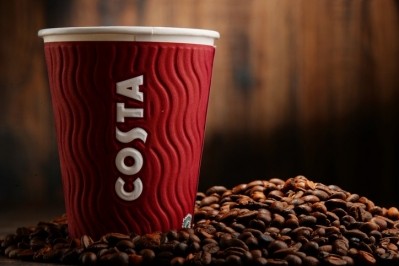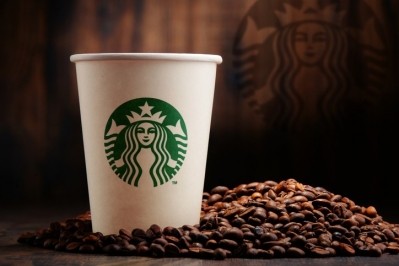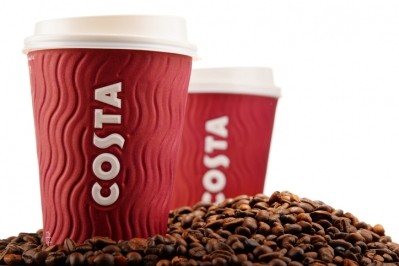Coca-Cola: ‘The acquisition of Costa will give us a strong coffee platform’
Coca-Cola to acquire Costa Coffee for $5.1bn
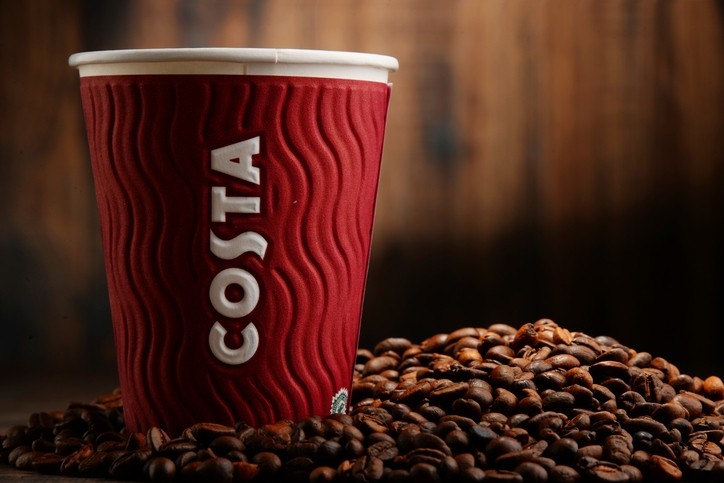
Costa was founded in London in 1971, and is now the world's second largest coffee chain.
It is the leading coffee company in the UK with a growing footprint in China and more than 30 other countries. “The acquisition of Costa will give Coca-Cola a strong coffee platform across parts of Europe, Asia Pacific, the Middle East and Africa, with the opportunity for additional expansion,” says Coca-Cola.
The acquisition of Costa Limited from parent company Whitbread PLC is valued at £3.9bn ($5.1bn). Costa operations include its brand, nearly 4,000 retail outlets, a coffee vending operation, for-home coffee formats and Costa’s roastery. Costa also has Costa Express, which offers barista-quality coffee at on-the-go locations.
“Costa, in various formats, has the potential for further expansion with customers across the Coca-Cola system,” says Coca-Cola.
Coca-Cola and coffee
Whitbread bought Costa Coffee from founders Sergio and Bruno Costa for £19m ($25m) in 1995, when it had 39 outlets. Today that has grown to nearly 4,000 outlets: of which around 2,400 are in the UK and the rest in overseas markets.
Whitbread announced its intention to split off Costa as a separate business earlier this year.
Coca-Cola sees coffee as a ‘significant and growing segment of the global beverage business’. However, it points out that no single company operates across all formats worldwide, with the market largely fragmented.
Coca-Cola’s coffee portfolio already includes market-leading Georgia in Japan, plus other coffee products worldwide.
James Quincey, Coca-Cola President and CEO, said: “Costa gives Coca-Cola new capabilities and expertise in coffee, and our system can create opportunities to grow the Costa brand worldwide.
“Hot beverages is one of the few segments of the total beverage landscape where Coca-Cola does not have a global brand. Costa gives us access to this market with a strong coffee platform.”
Whitbread shareholder approval is expected to take place by mid-October. The deal is subject to customary closing conditions, including antitrust approvals in the EU and China.
The deal is expected to close in the first half of 2019.
Coca-Cola: Not just about Coke
Coca-Cola has pledged to become a 'total beverage company' - moving beyond soda and into other beverage categories - and nothing illustrates this better than its acquisition of Costa.
Acquisitions have to date have included a broad spectrum of beverage categories: such as Latin American soy-based beverage AdeS (2017), premium sparkling mineral water Topo Chico (2017), and RTD tea Honest Tea (2011), as well as taking a minority stake in cold-pressed juice Suja Juice (2015).
It is also experimenting with other beverage categories in-house: such as with a lemon flavored alcoholic beverage in Japan.
But by acquiring the world's second-largest coffee chain, Coca-Cola is taking a particularly huge leap into coffee: a promising category that resonates with today's trendy millennials and energy-seeking consumers. As Coca-Cola CEO James Quincey points out, coffee is a category where Coca-Cola only has a relatively small presence - but that will all change once this transaction is complete.
Thanks to Costa's strong consumer base across Europe, Asia Pacific, the Middle East and Africa, Coca-Cola sees Costa as a strong launchpad for expansion in the coffee category worldwide.
And Coca-Cola's acquisition - which comes just days after Nestle gained the rights to Starbucks' retail coffee brand in its third biggest acquisition ever - is a reminder that the coffee category is really heating up.
Pic:istock/brebca
